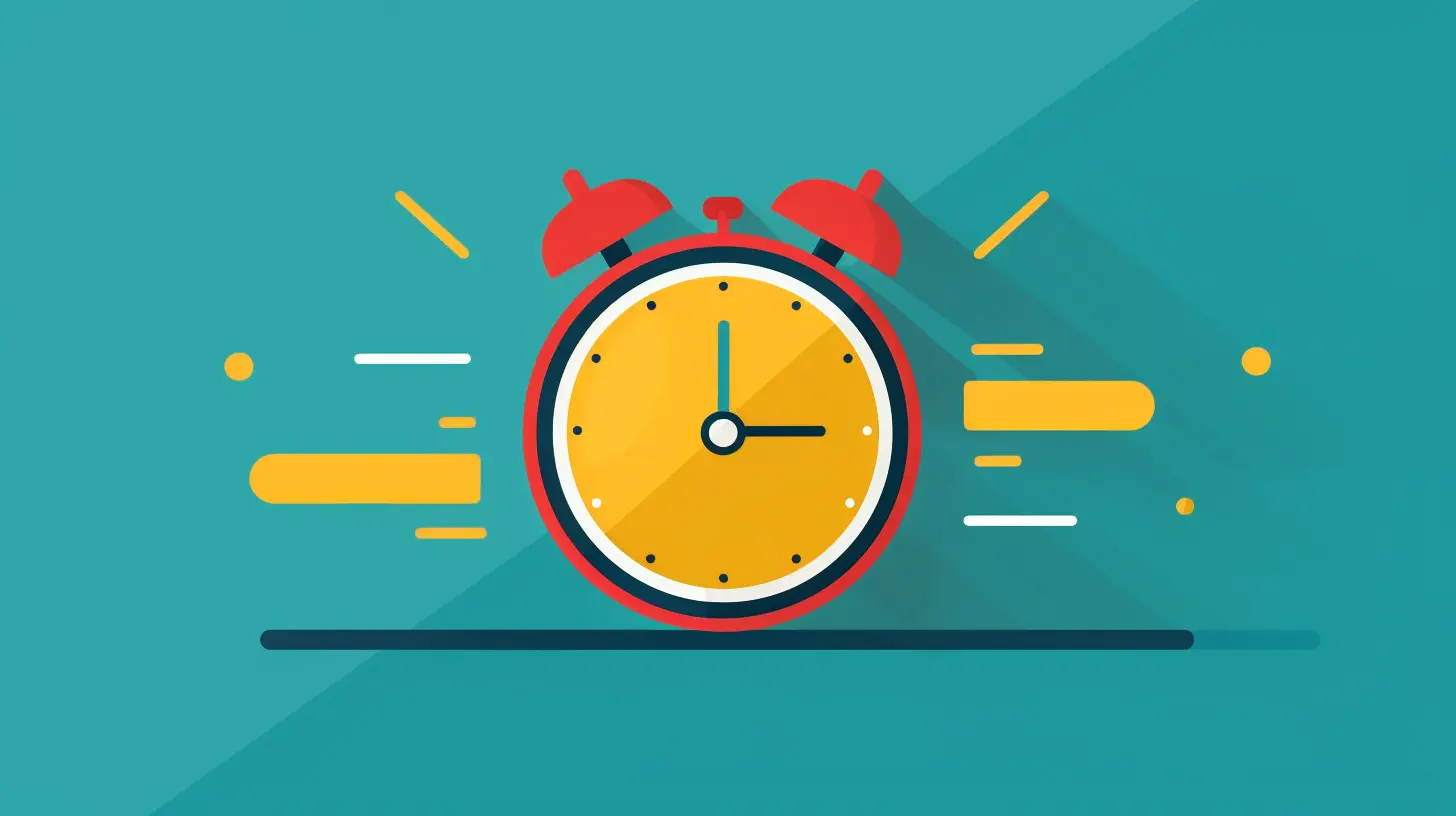How Late Payments Can Damage Your FICO Score
30 June 2025
Let’s face it—life happens. Between juggling bills, unexpected expenses, and trying to save for a rainy day, it’s easy to let a payment slip through the cracks. But missing a due date might cost more than you think—it can take a serious toll on your credit score, specifically your FICO score. So, how exactly do late payments hurt your FICO score, and what can you do to protect it? Don’t worry; we’ll break it all down for you in plain English. Grab your coffee, and let’s dive in!
What is a FICO Score, and Why Does It Matter?
Before we get into the nitty-gritty of late payments, let’s cover the basics. Your FICO score is essentially your financial reputation boiled down into a three-digit number. It ranges between 300 and 850, and it’s one of the primary tools lenders use to decide whether to trust you with a loan, credit card, or mortgage.Think of it this way: if your FICO score were a report card, it would represent your financial discipline. A high score? That tells lenders you’re responsible. A low score? It signals red flags, like missed payments or too much debt. So, yeah, your FICO score matters—a lot.
How Are FICO Scores Calculated?
Your FICO score isn’t pulled out of thin air. It’s calculated based on five key factors, and each one plays a different role. Understanding these factors is crucial because they’ll help you see exactly why late payments matter so much. Here’s a quick breakdown:1. Payment History (35%)
This is the big one! Your payment history makes up the largest chunk of your FICO score. Lenders want to know if you’ve paid your bills on time in the past because it helps them predict how reliable you’ll be in the future.
2. Credit Utilization (30%)
How much of your available credit are you actually using? If you’re maxing out your credit cards, it could hurt your score.
3. Length of Credit History (15%)
The longer you’ve been using credit responsibly, the better.
4. Credit Mix (10%)
Variety matters! Having a mix of credit cards, loans, and other accounts can give your score a little boost.
5. New Credit (10%)
Opening too many new accounts in a short period can make you look desperate for credit.
Do you notice the elephant in the room? Payment history alone makes up 35% of your score. That’s why late payments can hit your FICO score like a wrecking ball.
The Domino Effect of Late Payments on Your FICO Score
Now, let’s get into the meat of the matter: how late payments actually damage your FICO score. Spoiler alert—it’s not pretty.1. The Clock Starts Ticking After 30 Days
Forget to pay your credit card bill? Your lender probably won’t report it to the credit bureaus (Experian, TransUnion, and Equifax) unless it’s 30 days overdue. However, that doesn’t mean you’re off the hook. You’ll likely face late fees, and your interest rate could skyrocket.But once that 30-day mark passes? Boom. Your lender reports the late payment to the bureaus, and your FICO score takes a hit.
2. The Severity and Frequency of Late Payments Matter
Not all late payments are created equal. A single missed payment might drop your score by 50 to 100 points, especially if you had a stellar score to begin with. And if you make it a habit? Well, let’s just say lenders don’t like repeat offenders. Consistent late payments can push your FICO score into “poor” territory faster than you can say "budget."3. Older Accounts Take a Bigger Hit
Here’s something most people don’t know: the longer you’ve had an account in good standing, the worse the damage from a late payment. It’s like building a sandcastle for hours, only to have a wave wash it away in seconds.4. The Stain Lasts—A Long Time
Late payments don’t just disappear after you pay up. They can stay on your credit report for up to seven years. That’s right—seven years of lenders side-eyeing your creditworthiness. While their impact does fade over time, the first two years can feel like carrying a financial ball and chain.
Why Lenders Care So Much About Timely Payments
You might be wondering, “What’s the big deal? I just missed one payment.” Well, from a lender’s perspective, late payments are a sign of financial instability. They start questioning whether you’ll pay back a loan at all. Imagine you’re lending money to a friend who keeps "forgetting" to pay you back—wouldn’t you hesitate the next time they ask for cash? That’s exactly how lenders feel.Other Consequences of Late Payments
If you thought a ding to your FICO score was the only downside, think again. Late payments can trigger a financial domino effect. Here are a few additional ways they can hurt you:1. Higher Interest Rates
Late payments can cause your interest rates to skyrocket—especially if your credit card company imposes a penalty APR. Suddenly, that balance you’ve been carrying becomes a whole lot more expensive.2. Limited Access to Loans
A lower FICO score means you’re less likely to qualify for loans, credit cards, or even a decent apartment. And if you do qualify, expect higher interest rates and stricter repayment terms.3. Damage to Relationships with Lenders
Once you’ve missed a payment, lenders might not trust you as much. They could reduce your credit limit, making it harder for you to manage your finances.Steps to Avoid Late Payments (and Protect Your FICO Score)
Let’s end on a positive note, shall we? The good news is, you can prevent late payments altogether with just a little planning. Here are some actionable tips to keep your FICO score in the green:1. Set Up Auto-Pay
Life gets busy, and forgetting a due date is easier than you think. Auto-pay ensures that at least the minimum payment is made on time, every time.2. Create Payment Reminders
Not a fan of auto-pay? Set up calendar alerts or download a budgeting app that reminds you when payments are due.3. Budget for Your Bills
Let’s be real—you can’t pay your bills on time if you don’t have the money. Creating a monthly budget ensures you allocate funds for those pesky due dates.4. Negotiate with Lenders
If you’ve already missed a payment, call your lender! Sometimes, they’ll waive the late fee or refrain from reporting it to the credit bureaus if you explain your situation.5. Check Your Credit Report
It’s wise to keep tabs on your credit report. You’re entitled to a free report annually from each of the three major bureaus. Look for errors, because sometimes late payments are reported by mistake.What If You Do Miss a Payment?
Alright, so you slipped up—now what? Don’t panic. Here’s what to do if you’ve already missed a payment:1. Pay It ASAP
The longer you wait, the worse the consequences. Paying it off quickly minimizes the damage.
2. Ask for Forgiveness
If it’s your first offense, call your lender and request a goodwill adjustment. It’s not guaranteed, but some companies will remove the late payment from your credit report as a gesture of goodwill.
3. Focus on Building Positive Credit
Your credit history is cumulative. Adding more on-time payments to your report will slowly outweigh the negative mark of a late payment.
Final Thoughts: Timing is Everything
Late payments aren’t just inconvenient—they’re downright dangerous for your FICO score. Since payment history makes up a whopping 35% of your score, even a single slip-up can cause serious damage. The best solution? Prevention. Stay on top of your due dates, automate your payments, and keep an eye on your budget. Because when it comes to your credit, every payment counts!all images in this post were generated using AI tools
Category:
Fico ScoreAuthor:

Angelica Montgomery
Discussion
rate this article
1 comments
Celeste McPhee
Late payments and your FICO score are like peanut butter and jelly—tasty together but not always a good mix! Keep those payments on time to avoid a sticky financial situation. Your wallet will thank you!
July 12, 2025 at 4:57 AM

Angelica Montgomery
Great analogy! Timely payments are crucial for maintaining a healthy FICO score and avoiding financial troubles. Thanks for sharing!


